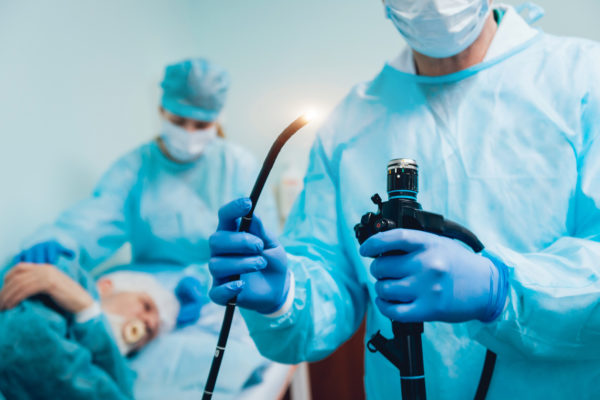Table of Contents
Introduction: Colonoscopy
Did you know that colorectal cancer is the second leading cause of cancer-related deaths in the United States? However, early detection through screenings like colonoscopy can prevent up to 60% of these deaths. A colonoscopy is one of the most effective ways to detect and prevent serious conditions before they progress. Yet, many people still feel uncertain about the procedure due to myths and misconceptions.
This article will cover everything you need to know about colonoscopy, from the procedure to how to prepare and what to expect during and after. Whether you’re due for your first screening or want to learn more, we’ll guide you through the process. For more information on personalized colonoscopy services, visit Unio Specialty Care.
What Is a Colonoscopy?
A colonoscopy is a vital diagnostic and preventative procedure primarily used to detect colorectal cancer, benign growths (polyps) that might become cancer if not removed,and to assess gastrointestinal symptoms like chronic diarrhea, abdominal pain, or unexpected changes in bowel habits. During this procedure, a gastroenterologist inserts a thin, flexible tube (colonoscope) equipped with video technology to inspect the colon’s lining. This allows them to identify issues, take tissue samples, remove polyps, or treat areas of concern.
A colonoscopy is performed on an outpatient basis and typically involves sedation, ensuring patients remain comfortable and unaware throughout the process. It’s a crucial step in identifying and addressing gastrointestinal health concerns early, promoting long-term wellness. For more details, check out Unio Specialty Care’s colonoscopy services.
How To Prepare For A Colonoscopy?
Thorough preparation is key to a successful colonoscopy, as it ensures the doctor has a clear view of the colon to detect abnormalities. Research indicates that inadequate bowel preparation can result in missed polyps, or inability to see portions of the colon, potentially requiring a repeat exam.
Preparation typically involves following a clear liquid diet for the day before your procedure and using a prescribed bowel cleansing solution. To improve the effectiveness and tolerance for this solution, it’s taken in split doses starting the evening before and finishing several hours before the procedure. This split-dosing method is particularly important for ensuring the entire colon, especially the right side where flatter polyps can hide, is thoroughly cleansed.
Although the preparation may be uncomfortable, following detailed instructions from your doctor is crucial for accurate results and avoiding a repeat procedure.
How Long Does A Colonoscopy Take?
What To Eat After A Colonoscopy?
Following a colonoscopy, generally a normal diet can be resumed without delay, but it is sensible to not overeat (despite having been without solid food a while!!), and to not eat foods that are very spicy or rich with fat. Some people prefer just soup or a sandwich, many have a full meal, just take it slow and continue hydrating. After all, you’ve just had a lot of laxative.
Also, follow any specific dietary guidelines from your doctor, especially if polyps were removed.
What Are The Potential Risks Or Complications Of Colonoscopy?
While colonoscopy is generally safe and effective, like any medical procedure, it comes with risks. Understanding these potential complications can help you make an informed decision.
Pertinent risks include:
- Perforation of the colon: In rare cases, the colon wall can be punctured, which may require surgical repair.
- Bleeding: Some bleeding is possible after a polyp removal. Severe bleeding, which is rare, might require additional intervention, such as a blood transfusion or reinserting the colonoscope to stop the bleeding.
- Missed lesions: Despite being thorough, there’s a slight chance some abnormalities may not be detected during the procedure.
- Reactions to sedation: Though uncommon, some patients may experience adverse reactions to the sedative used.
Discuss any concerns with your doctor beforehand to understand how these risks may apply to your situation.
When Will I Know The Results Of My Colonoscopy?
How Can Unio Specialty Care Treat You?
Getting a colonoscopy is a proactive step towards safeguarding your digestive health. At Unio Specialty Care, we provide comprehensive, patient-centered care tailored to your needs.
What sets Unio Specialty Care apart is our focus on personalized treatment plans, state-of-the-art technology, and a team of highly experienced specialists who prioritize patient comfort and safety. Whether it’s your first colonoscopy or a follow-up exam, our goal is to ensure a smooth and stress-free experience from start to finish.
Unio offers advanced AI system that works alongside skilled physicians to detect polyps and abnormalities in real time, improving detection rates and reducing the risk of missed lesions. This cutting-edge technology ensures thorough screenings and better outcomes by identifying even subtle issues that may be overlooked by the human eye. Click here to find a location near you that offers AI-Assisted Colonoscopy.
Ready to take control of your health? Explore our colonoscopy services and schedule a consultation with our expert team today. Let us help you stay ahead in your health journey.
- By: Unio Specialty Care, Published: 3/19/25
- Medically Reviewed By: Glenn Littenberg, MD – 3/18/25

